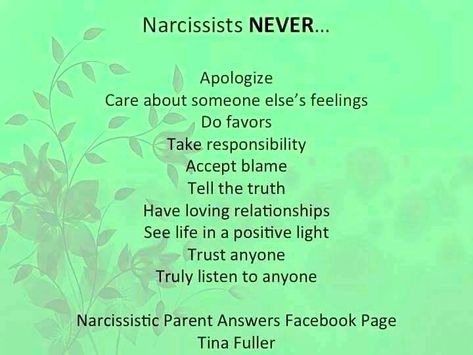What are your boundaries
Personal Boundaries: Types and How to Set Them
Personal boundaries are vital but not always easy to establish. Still, with a few helpful tips, setting and communicating boundaries becomes easier.
From childhood, we’re often taught to bend and mold ourselves to make others comfortable. Sometimes this messaging is implied (as in school dress codes, for instance), and sometimes it is direct (“I don’t’ care if you don’t want to hug your grandfather, it’s rude not to!”), but the one truth is that it’s always there.
So it’s no wonder some of us find it difficult to set appropriate boundaries as we get older. We don’t want to offend or hurt others, even when that avoidance ultimately means hurting ourselves. We’ve been taught from a young age to put the feelings of others ahead of our own needs, to the point that many of us don’t even know the answer to the question, “What are boundaries?” let alone how to set them.
That isn’t a healthy or effective strategy for anyone. Research has found that the violation of personal space can cause discomfort, and personal experience tells most of us that discomfort caused by boundary violations can lead to anxiety and fallout in our relationships — both personal and professional.
Personal boundaries are simply the lines we draw for ourselves in terms of our level of comfort around others.
These boundaries may have to do with:
- physical contact (not feeling comfortable hugging a person you’ve just met)
- verbal interactions (not wanting a friend or family member to speak down to you)
- our own personal space (choosing to not have others in your home when you aren’t there)
These boundaries typically fall into a few specific categories:
- emotional (protecting our own emotional well-being)
- physical (protecting our physical space)
- sexual (protecting our needs and safety sexually)
- workplace (protecting our ability to do our work without interference or drama)
- material (protecting our personal belongings)
- time (protecting the use, and misuse, of our time)
Boundaries can also exist in a variety of situations, including:
- at work
- at home
- when visiting family
- when out with friends
Really, any time you are talking about engaging with others, you’ve likely got personal boundaries that surround that situation.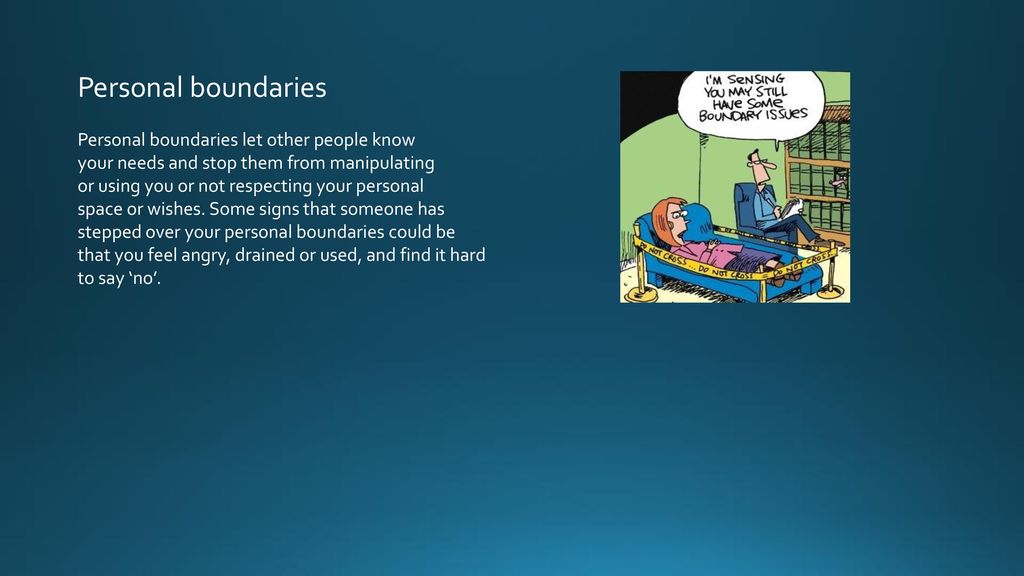
And finally, personal boundaries don’t have to be communicated for them to exist. We all have our lines of discomfort — they’re there whether you tell others about them or not. Still, personal boundaries are more likely to be violated if we don’t communicate them.
That’s when problems may occur.
We all have our own personal lines, boundaries we would feel more comfortable navigating life and our relationships with. The thing is, not everyone has the same boundaries, and most people aren’t capable of guessing what another person’s boundaries may be.
This is especially true for people who may have lower emotional intelligence (EQ). And often, they’re the people who benefit the most from having personal boundaries clearly communicated to them.
Setting boundaries is simply about communicating your needs for healthy interaction to someone else. It isn’t always easy. Not everyone may like or understand your boundaries or your reasons for setting them. But if you don’t set those boundaries, you certainly can’t expect them to be followed.
It often takes courage and strength to set boundaries, but when you do so, you can feel comfortable knowing your lines have been set. Your needs have been communicated. And if someone chooses to violate your boundaries after that, you would be within your rights to create further distance between yourself and that person.
No one has the right to tread on your boundaries. (But it’s also good to keep in mind that you — likewise — don’t have the right to tread on someone else’s.)
Boundaries are important, but they aren’t always easy to establish. People often don’t know where to begin or how to communicate their needs to others.
If you’re looking for a way to set your own personal boundaries, it may be a good idea first to consider what type of boundary you’re setting.
Setting emotional boundaries
Emotional boundaries often have to do with how others talk to and treat us, and they aren’t always things we think to set until after a boundary has already been crossed. This is OK, though.
This is OK, though.
Let’s say you got into an argument with someone, and they called you an unkind name. Once you have both calmed down, the best way to set an emotional boundary with that person is to:
- Approach them.
- Ask to speak about the argument.
- Own any part you may have played in the argument going awry.
- Tell them that you are not OK with name-calling and that you will need them to engage without stooping to that level in the future.
Setting physical boundaries
Let’s say you aren’t comfortable with shaking hands. While this tends to be a social norm, there are many reasons a person may not be comfortable doing so — especially since the COVID-19 pandemic. The best way to set this boundary is before it even becomes an issue. When you meet someone new:
- Wave from a few feet away.
- Smile and say, “I don’t shake hands, but I’m so glad to meet you.”
- Don’t feel the need to apologize or explain yourself beyond that.

This same tactic of saying something before a boundary is crossed works for other physical boundaries like not wanting hugs (a fairly common boundary) or being touched by someone you don’t know.
Plus, if someone is in your physical space, consider saying, “I get uncomfortable when people are too close to me. Could you take a step back?”
Remember: Boundaries are healthy, and you’re allowed to set your own.
Setting sexual boundaries
When beginning a new intimate relationship, it’s always a good idea to sit down with your partner first so that you can discuss each other’s sexual boundaries.
This can be a conversation you prompt by saying something like, “I am looking forward to taking the next step in our relationship, but I’d like to take a moment to talk about what that might look like.”
From there, you can communicate things you are and are not comfortable with in an intimate situation.
Setting workplace boundaries
The best way to establish workplace boundaries is to first set the tone in how you conduct yourself professionally — it should reflect the professional manner you hope others will return when engaging with you.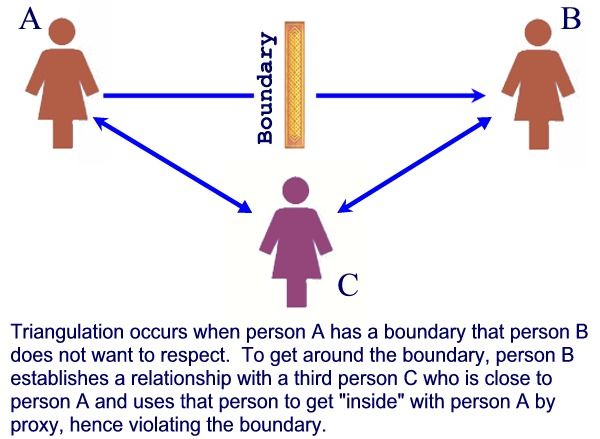
From there, setting workplace boundaries is often a matter of waiting until a boundary has been crossed before addressing the situation. For instance, if a colleague talks down to you in a meeting, you can approach them afterward and explain to them why that was unacceptable and what you need from them in the future.
If you have a colleague who routinely violates your work boundaries, don’t hesitate to get human resources involved.
Setting material boundaries
Let’s say you have a camper that a close friend wants to borrow for a trip with their family. You’re open to letting them use it, but you also want to make sure they take care of it the way you would.
In this case, it’s perfectly acceptable to outline your boundaries for care in writing, providing instructions for cleanup and general care. Written instructions placed inside the camper would be simpler for your friend to look back to, and they also help make your boundaries very clear.
Setting time boundaries
People tend to fall within two categories regarding time: Those who run late to everything, and those who tend to think that if you’re not early, you’re late.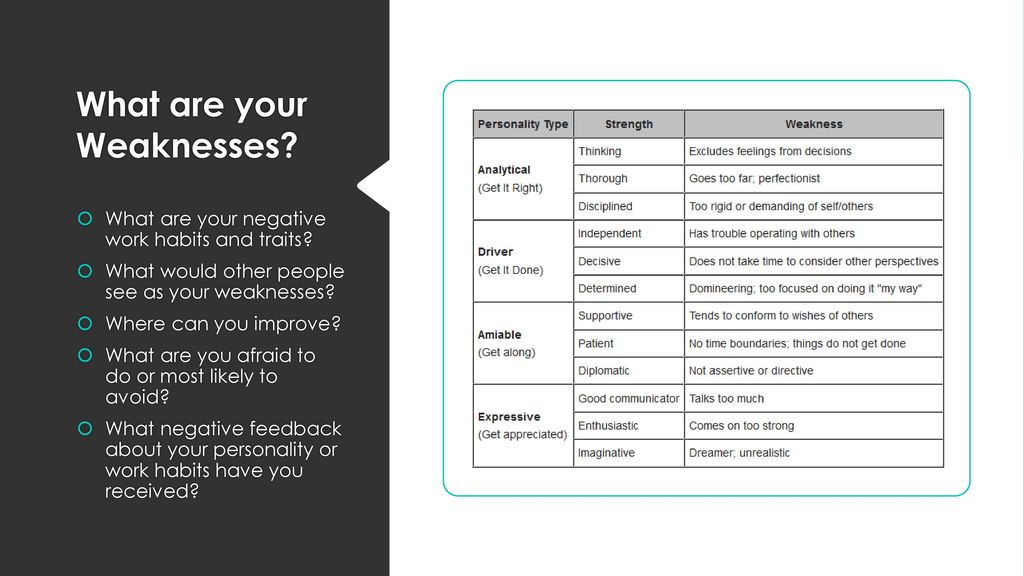
If you’re the latter, you likely feel as though your boundaries are often intruded on by the former. This is actually a very simple solution to navigate, however:
- Decide in your mind how long you’re willing to wait beyond an agreed upon meeting time.
- Give yourself permission to leave or cancel an appointment if that time isn’t met.
- If you’re dealing with someone who is perpetually late, communicate this to them ahead of time — let them know you will be leaving after a certain amount of time has passed. Still, try not to sound accusatory. Consider acknowledging that you two have different personalities. You’re not trying to change them, but you need to set time boundaries for yourself because you can’t afford or don’t want to wait any longer.
Sometimes, no matter how hard you’ve tried to communicate your boundaries, someone may break them anyway. In that case, know that you’re allowed to cut off contact with that person. Anyone who doesn’t respect your boundaries ultimately doesn’t respect you.
Of course, you have to know your boundaries before you can expect anyone else to follow them. So consider sitting down and writing out what some of your boundaries may be.
It may help to work through the categories, considering interactions that have made you uncomfortable in the past and how establishing boundaries may have helped.
The most important thing to remember is that you’re allowed to set these boundaries, and there’s no need to feel guilty about it.
The world is not a better place when we ignore our own needs for the comfort of others — the people who care about you want to know what you need to feel safe. But they can’t help until you know that yourself, and are able and willing to communicate those needs.
What are my boundaries? - love is respect
When you think of a boundary, what comes to mind? You might think of something like a property line or the defining lines of a shape. Boundaries show where one thing ends and another begins. Boundaries in a relationship are kind of like this; they help each person figure out where one person ends and the other begins. In short, boundaries help you define what you are comfortable with and how you would like to be treated by others. They apply to any kind of relationship you have – whether with a friend, family member, partner or anyone else in your life.
Boundaries in a relationship are kind of like this; they help each person figure out where one person ends and the other begins. In short, boundaries help you define what you are comfortable with and how you would like to be treated by others. They apply to any kind of relationship you have – whether with a friend, family member, partner or anyone else in your life.
What are my boundaries?
Even though we talk about them in relation to other people, in some ways boundaries are really about your relationship with yourself; they help you honor your needs, goals, feelings and values. Boundaries can be emotional, physical or even digital. Some examples of personal boundaries might be:
- I’m cool with following each other on social media, but not with sharing passwords
- I’m comfortable kissing and holding hands, but not in public
- I’m okay with regularly texting, but I don’t want to text multiple times in an hour
- I want to spend time with my friends/family on weekends
- I need quiet time to myself every day
- I’m comfortable with some touching, but I’m not ready to have sex
It can be helpful to think through your own boundaries, no matter what your relationship status is. Start by paying attention to how you feel about and react to situations around you, whether in real life or in shows or movies you watch. What makes you feel uncomfortable? What’s important to you? What do you want to keep private? Is there any type of behavior or trait that would not fly with you, ever (sometimes called a “dealbreaker”)? It might be helpful to write down some of your thoughts.
Start by paying attention to how you feel about and react to situations around you, whether in real life or in shows or movies you watch. What makes you feel uncomfortable? What’s important to you? What do you want to keep private? Is there any type of behavior or trait that would not fly with you, ever (sometimes called a “dealbreaker”)? It might be helpful to write down some of your thoughts.
Communicating boundaries
How can you and your partner know each other’s boundaries? By talking about them! Communication is really key in a healthy relationship, and boundaries are an important part of an ongoing conversation between you and your partner. Talking about boundaries can happen whenever, wherever! If your partner does something that you like or don’t like, let them know. A simple, “Hey, I really like it when you…” or “I’m not comfortable when we…” lets them know what’s up. In a healthy relationship, partners respect each other’s boundaries once they’ve been communicated.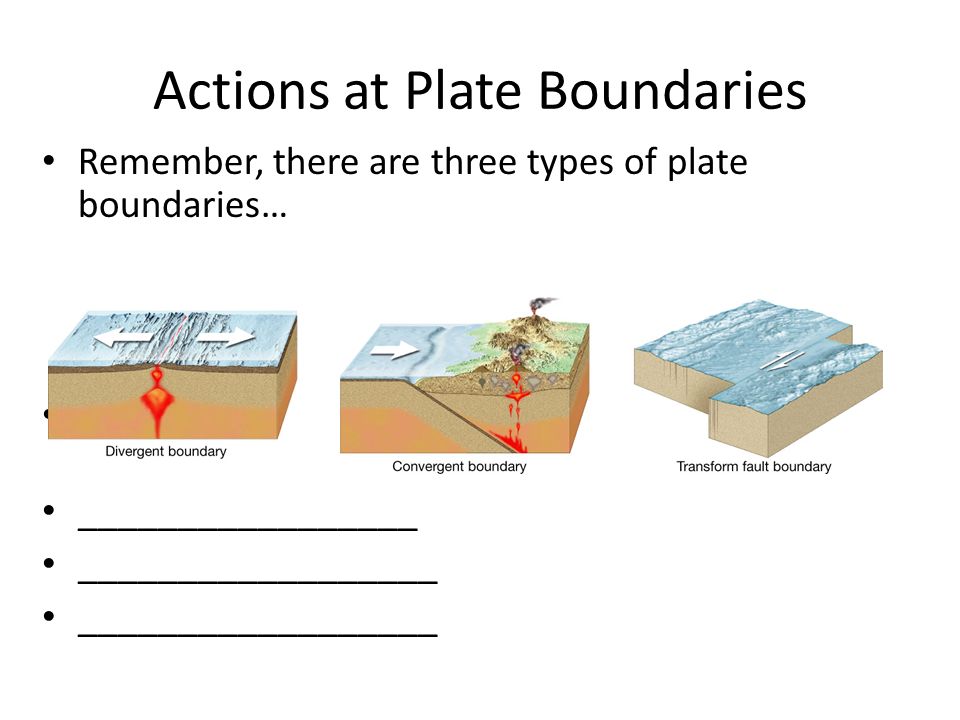 And if you’re ever not clear on your partner’s boundaries, just ask! Questions like “Is this okay?” or “Are you cool with this?” can help jumpstart the conversation. Just remember: if you don’t want to talk about your boundaries with your partner because you’re afraid they’ll react with anger or violence, that’s a warning sign that your relationship might be unhealthy or abusive.
And if you’re ever not clear on your partner’s boundaries, just ask! Questions like “Is this okay?” or “Are you cool with this?” can help jumpstart the conversation. Just remember: if you don’t want to talk about your boundaries with your partner because you’re afraid they’ll react with anger or violence, that’s a warning sign that your relationship might be unhealthy or abusive.
Healthy vs. unhealthy boundaries
How do you know if a boundary is healthy…or not? It’s important to recognize that healthy boundaries help to protect and respect you; an unhealthy boundary seeks to control or harm someone else. A healthy boundary would be: “I need space to hang out with my friends and do things I enjoy on my own.” But if your partner says, “I need you to stop talking to other guys/girls because you might cheat/I get jealous,” that’s not a healthy boundary; it’s a warning sign that your partner may have some trust issues and is trying to control who you hang out with. Here are some more great examples of healthy/unhealthy boundaries!
Here are some more great examples of healthy/unhealthy boundaries!
Can boundaries change?
Can your boundaries change over time? Yes! It’s normal for boundaries to shift as we gain more life experience or get more comfortable in our relationships. We might not be okay with something at the beginning of a relationship, but we might be totally cool with it a few months down the line. On the other hand, we might realize something crosses a boundary for us after experiencing it for the first time. Every person has the right to change their mind about what their boundaries are at any time. What’s important is that you’re communicating any boundary changes to your partner and you’re making changes because YOU want to, not because you’re being pressured, forced or manipulated into making them.
You deserve to be safe and respected, and boundaries play a big part in creating healthy relationships that let you be YOU. If you still have questions about setting your own boundaries, we can help you think through them. Call, chat or text with a loveisrespect advocate any time.
Call, chat or text with a loveisrespect advocate any time.
Answers shouldn’t be hard to find.
We're here to help!
I'm in the house: how to set boundaries correctly
Personal boundaries are a line that runs between individuals, the people around them and larger social systems. They are needed so that we can clearly feel: where I am, and where I am not; where are my own emotions, actions, beliefs and thoughts, and where are others. And if these emotions and thoughts are mine, then I am responsible for them and control them. Borders also protect our inner world from outside encroachment.
They may look like a five-meter stone fence with barbed wire and machine gunners on the towers. Or they may be absent altogether - all the doors will be wide open. Boundaries can change depending on the context and environment, become solid for some people and completely blurred for others.
Personal boundaries can be opened for "import", when we gladly accept other people's help, resources, time, money, etc., or for "export" - our own resources. We usually import what we especially need, and we export either what we have in abundance, or what we hope to get a good price for.
Boundaries are needed to mark two important questions:
1. What do I consider my property (and, accordingly, I will protect)?
2. What am I responsible for (and will try to control)?
Boundary checking
How does this manifest itself in specific behavior? There are people for whom property boundaries can be very arbitrary. Such a person does not consider anything his own, inviolable, he "does not become attached to things." He cannot close himself in his room because he considers it impolite. Such people cannot refuse help or money, even realizing that this money will not come back. Their borders are always open for imports, it is important for them that people see them as kind, generous and open. It's a way to build relationships. Sometimes they even think that having nothing of their own is safer.
Such a person does not consider anything his own, inviolable, he "does not become attached to things." He cannot close himself in his room because he considers it impolite. Such people cannot refuse help or money, even realizing that this money will not come back. Their borders are always open for imports, it is important for them that people see them as kind, generous and open. It's a way to build relationships. Sometimes they even think that having nothing of their own is safer.
The opposite type is people whose boundaries are too wide. They consider everything their property - wife, children, employees, office or apartment space, other people's things and time. They do not see other people's boundaries and do not consider it necessary to observe them. Wherever such a person is, there is always “too much” of him, he captures the space around him. And if he was not given something in a good way, he can take it away "in a bad way. "
"
Two "extreme" types also exist in relation to responsibility. There are people who take on too much, trying to control what is beyond their control. Such a wife thinks that her husband yelled at her because she did not have time to set the table on time or did not clean up well enough. People agree with every charge brought against them. The logic is this: if I tried better (guessed other people's desires and did everything right), then this would magically change those around me, make them happy and loving. People with such a strategy of thinking lack recognition and praise, they are ready to do everything to get this simple currency.
The other extreme is characters who are not ready to take responsibility not only for others, but also for themselves. They do not see their contribution to the development of conflict situations, do not accept criticism and try to avoid any obligations. If you entrust them with a project, they will either require a partner or will come running every half hour with questions and clarifications so that the responsibility does not lie with them (or at least not with them alone). Men with a fear of responsibility are almost elusive for marital or paternal obligations. They consider them a violation of their boundaries, because the family will force them to change their usual way of life.
If you entrust them with a project, they will either require a partner or will come running every half hour with questions and clarifications so that the responsibility does not lie with them (or at least not with them alone). Men with a fear of responsibility are almost elusive for marital or paternal obligations. They consider them a violation of their boundaries, because the family will force them to change their usual way of life.
Border Guard Day
How to define your borders and protect them? Unfortunately, you cannot put up pegs and notify others that “this half a meter of land around me is my territory, do not enter without knocking.” Although, in fact, this is exactly what young ladies with long puffy skirts did in the old days.
In my trainings I often do a simple exercise. I ask a person to designate a limit invisible to others, and I begin to slowly approach it - step by step. The task of the participant is to make it clear without words that I am already close to the point that I do not need to cross. The reaction is very different. Someone is very calm at first and only at the last moment begins to frown. Someone, on the contrary, from my first step “gets into a pose” and puts on “boxing gloves”. Very polite people let me close, with a bewildered smile on their face. And only then it turns out that I have long passed the intended border. There was also such an “intelligent” reaction: when a person understands that I am not going to stop and provoke him to more obvious actions, he himself takes a step back, leaving his integrity stable. But in order to stay at a safe distance from me, he has to give up his territory.
I ask a person to designate a limit invisible to others, and I begin to slowly approach it - step by step. The task of the participant is to make it clear without words that I am already close to the point that I do not need to cross. The reaction is very different. Someone is very calm at first and only at the last moment begins to frown. Someone, on the contrary, from my first step “gets into a pose” and puts on “boxing gloves”. Very polite people let me close, with a bewildered smile on their face. And only then it turns out that I have long passed the intended border. There was also such an “intelligent” reaction: when a person understands that I am not going to stop and provoke him to more obvious actions, he himself takes a step back, leaving his integrity stable. But in order to stay at a safe distance from me, he has to give up his territory.
I don't know how you would react in this exercise. Think about it.
You can defend your borders in different ways in different situations.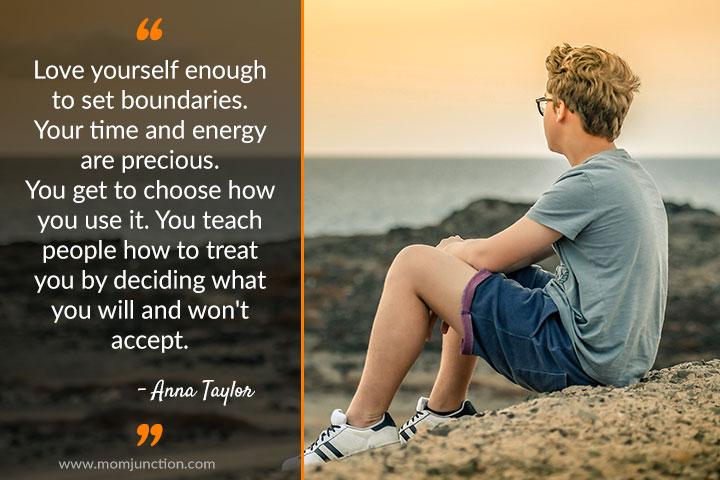 The ability to say "no" (without the subsequent sprinkling of ashes on the head!) Is an important personality skill. It is necessary for those who easily succumb to pressure, aggression and other "honest ways of taking money."
The ability to say "no" (without the subsequent sprinkling of ashes on the head!) Is an important personality skill. It is necessary for those who easily succumb to pressure, aggression and other "honest ways of taking money."
The ability to create and protect one's own boundaries, of course, is formed even by parents. But over the course of life (and with different people), boundaries can change many times. Teenagers, for example, protect them militantly, they need this life period in order to separate from their parents and learn to build their own lives on their own, to respect themselves. And couples in love sometimes completely dissolve in each other, and only then they begin to notice that it has become crowded. If you do not revise the rules of interaction in time, do not outline the circle of your interests, then the couple comes to a crisis or even breaks up.
Like any other skill, the ability to see and respect one's own and others' boundaries may well be mastered at a later period of time.
How to defend your territory
How do you react to a yelling boss? Do you get nervous before public speaking? Are you able to refuse requests from loved ones if they are inconvenient for you? Do children have the right to disagree with you, to close in their room? How do you feel when your spouse (or best friend) said something “wrong”? Do you want to suggest, correct, give a cuff, shame, do you think that the actions of loved ones “dishonor your reputation”?
The skill of respecting other people's boundaries is, first of all, allowing other people to be different from you. A good aphorism caught my eye recently: “Selfishness is not when you do what you want. This is when you are sure that others should do what YOU want. When you want to "do good" to someone - that is, to help, give advice, stand up for someone, correct the situation - pause and look around.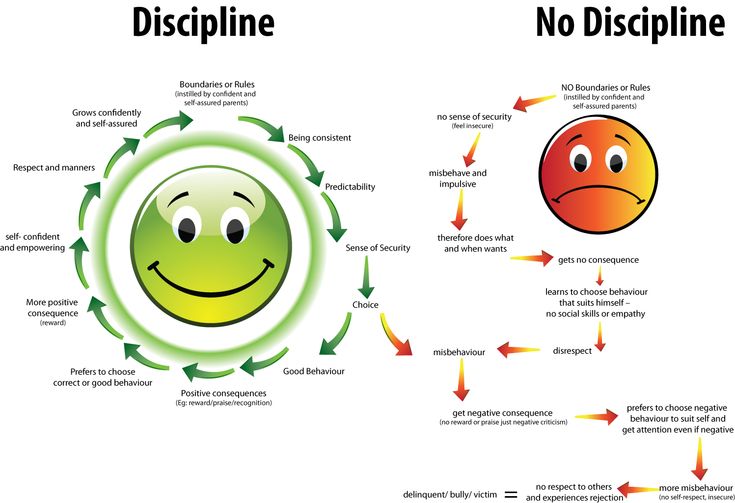 Does this violate someone's interests, does it plunge your counterpart into a position of helplessness and dependence? Have you been asked for this help? Does the person really need this kind of help?
Does this violate someone's interests, does it plunge your counterpart into a position of helplessness and dependence? Have you been asked for this help? Does the person really need this kind of help?
The main feature of "healthy" boundaries is their flexibility.
If you know how to move away from situations that are dangerous or unpleasant for you (if not physically, then at least emotionally!),
If you can, depending on the situation, open up for the "import" and "export" of resources, adequately use the words “yes” and “no”,
if you find it comfortable and safe to get close to the people you choose,
if you are able to consider both your own interests and the interests of others,
then your relationships with people become much more simple, honest and pleasant.
Personal boundaries: what they are, how to build and defend them
It would be convenient if each person was accompanied by clear instructions - do not touch here, do not touch this topic, the following is permissible in sex, views are moderately open, I do not lend . It would also be amazing if this instruction changes in real time, adjusting to our new needs, periods in life, certain people, personal crises and discoveries. But such a document is not issued anywhere, so people around can only guess - by indirect signs and personal interpretations - where everyone's comfort zone ends. What is there, even the person himself is not always aware of what is good and what is bad.
- What is
- Why do we need
- How to line up
- How to protect
What are personal boundaries
Advertising on RBC www.adv.rbc.ru
Personal boundaries are invisible, but very important "fences" that separate a person, his habits, aspirations, actions and thoughts from the outside world. They are needed to protect the individual and what is valuable to her - time and energy, emotions and feelings, cultural, religious and ethical values, sexuality, personal space and even things. Too high, impenetrable boundaries can isolate from the world and lead to loneliness. The absence of borders threatens with loss of identity and stress from constant interventions from outside.
They are needed to protect the individual and what is valuable to her - time and energy, emotions and feelings, cultural, religious and ethical values, sexuality, personal space and even things. Too high, impenetrable boundaries can isolate from the world and lead to loneliness. The absence of borders threatens with loss of identity and stress from constant interventions from outside.
Why build personal boundaries
Strong but flexible personal boundaries help you build healthy relationships with the outside world—with your partner, family, friends, colleagues, and bosses—that keep them from becoming dangerous psychologically and sometimes physically abusive. These same boundaries carefully protect our self-esteem, help to prioritize and maintain a balance between different areas of life.
Flexibility is one of the most important qualities of personal boundaries. They can change with different people and situations, and this is perfectly normal. No one can accuse you of double standards and hypocrisy if a certain context makes communicating with someone or the situation uncomfortable for you. On the contrary, the flexibility of boundaries helps us to properly distribute energy and not waste it in vain (or on an internal struggle with discomfort).
On the contrary, the flexibility of boundaries helps us to properly distribute energy and not waste it in vain (or on an internal struggle with discomfort).
Close to the heart: what is high sensitivity and how to live with it
Finally, paradoxically, it is the boundaries that help us to be vulnerable - to allow ourselves to be weak, imperfect and therefore alive. For example, you are in a crisis. Under pressure from outside - when loved ones interfere with unsolicited advice - I want to close myself from everyone, which can only aggravate the condition. On the contrary, if you are aware and vocal that you are not yet ready to discuss your condition, it will be easier for you to take the first step - to violate your own boundary and come out to have a frank conversation when you feel safe.
A scene from the Sex Education series
© imdb.com
How to build personal boundaries
Our upbringing, culture, mentality and signs of the times, personality and character traits, life experience, family relationships and current life situation - everything it affects how we subconsciously form personal boundaries. In order to understand them, you can answer a few questions.
In order to understand them, you can answer a few questions.
What are you entitled to?
This is a simple but important question - it helps to remember that every person has basic rights that he can exercise without a twinge of conscience. The right to say no, to refuse an offer, and not feel guilty. The right to expect to be treated with respect, to think about your desires and needs no less than about the needs of other people, the right not to live up to someone's expectations, and - very importantly - the right to make a mistake. This is the minimum by which you can define your personal boundaries.
How do you feel?
A situational question to ask yourself periodically in a variety of situations. How do you feel when a friend wants to discuss your personal life with you. What do you feel when once again you have to linger in the office, when someone asks a question about your life situation, touches on the topic of politics, asks to borrow money or some thing.
Obvious signs of discomfort:
- dry mouth;
- palpitations;
- sweating;
- irritation.
What do you value?
Personal boundaries can and even should be built in accordance with one's values. If you haven't already identified them, you can brainstorm, write down the top ten, and then reduce first to five, and then to three. Get a short list of basic and very important life guidelines. How often do you have to step over them? What things, people and situations in life make you live contrary to your ideals? Understanding this will help identify pain points.
A scene from Sex Education
© imdb.com
How to Gently Defend Personal Boundaries
When you understand what exactly you will protect, you can move on to the question "how". The main thing here is not to slide into aggression and listen to yourself. Borders tend to change, and it is better to keep track of their movement in time.
1. Be assertive
There is a big difference between assertiveness and aggressiveness. The first instills respect, the second - fear and retaliatory aggression. Perseverance does not involve bargaining, half-hints and various readings, but does not lead to accusations and attacks on the other person. “Don’t you dare touch my things” sounds aggressive. “I want to know that I have a safe place where I can write down my thoughts. That's why I feel uncomfortable when you get into my diary. Please don't do it again" sounds convincing.
2. Learn to say no
Sometimes you don't have to be pushy when explaining why something makes you uncomfortable. It is enough to immediately say “no” and thereby get rid of future problems. Unfortunately, from childhood we cultivate a tolerance for discomfort - we learn to do what we do not like and agree to things that we do not want. Many are under the illusion that life for the sake of others will make them popular and loved - it seems to us that in no case should we refuse, otherwise we will remain lonely and useless.
